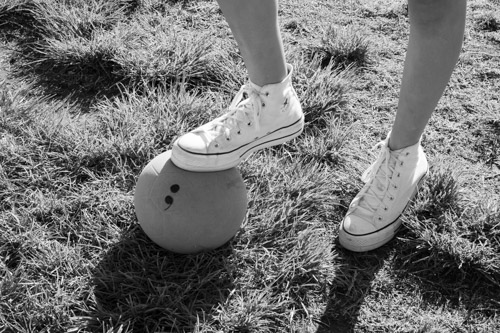Lessons Learned From The Loss of Katie Meyer

Katie Meyer’s death sheds light on the mental health struggles of student-athletes.
April 13, 2022
TW: This article discusses suicide. If you or someone you know is at risk of suicide please call the U.S. National Suicide Prevention Lifeline at 800-273-8255, text HOME to 741741 or go to SpeakingOfSuicide.com/resources for additional resources.
Imagine leaving a six-hour day of school, fully aware that you still have hours of homework and a two-hour practice that evening. The pressure for these students to perform well in an academic and athletic environment causes many to have trouble finding a balance.
This is the reality that Katie Meyer faced when she began her career as a soccer player. On March 1, she died from suicide. Afterward, Katie’s parents were invited to speak about their daughter’s death on the Today Show.
“The parents of Stanford University soccer star Katie Meyer believe their daughter’s fear over potential disciplinary action from the school may have contributed to her death,” said Scott Stump of Today.com.
Gina and Steve Meyer spoke to their daughter via Facetime hours before her death and she seemed excited. “[They] wonder if the combined pressure of school and sports was too much,” said Stump.
This could be the reality for many student-athletes regardless of their competitive level. Katie was 18 years old at the time, which is considered an adult, thus her university was restricted from reporting any signs to her parents.
“The Meyer family hopes to start a conversation about opening up communication between parents and college administrators. Parents often aren’t alerted about what’s happening with their children because most university students are over 18 and considered adults, but the Meyers feel they missed a chance to potentially save their daughter if they only knew about what she was going through,” said Stump.
The death of Katie Meyer impacted many lives, especially her family and friends. Many others felt similar emotions towards her loss.
“It’s pretty devastating because people can hide their emotions so well, but they don’t know what’s going on inside,” said Rita G.
Hiding emotions suppresses transparency and prevents others from coming alongside those who are suffering in silence. Communication is key. Without it, empathy is harder to find.
“No one really knows how people are feeling until we ask or until we take time to notice. There’s always something behind it that no one really took the time to look at or focus on,” said Former DCIS student Isabel GS.
When people stop with a glance at the exterior of others, they assume it’s the same on the inside. But, that’s not always the case. Katie Meyer’s news shed light on the need to look deeper.
“Our teachers have multiple trainings called SOS, signs of suicide. Students are going to get this training as well, [so] everyone can be aware,” said DCIS Principal Mr. Apodaca.
Day Creek’s community is trained to help those who are struggling, often from the strain of sports and academics. These teens are dealing with more than just school which sometimes increases the chance of struggling.
“Recent statistics indicate that 95% of male and 85% of female athletes report higher stress compared to 52% of non-athlete students. Athletes report higher stress in romantic relationships, higher responsibilities, decreased sleep, and extracurricular activity demand,” according to RISE.
One way to navigate the challenge is by developing time management skills. This allows them to accomplish everything they need to do.
“[Student athletes] have a lot on their plate. They’re doing two things at once and [they] have to balance them evenly. They have to have good time management to go between both school and extracurriculars. It takes a lot of time and preparation to be good at both,” said 7th grader, Kaitlyn M.
DCIS student-athletes have to have their management skills “perfected” to minimize the stress to excel in sports and academics.
“[My weak mental health] affected me because I had a lot of responsibilities, and I was just trying to keep my grades up,” said Reese G.
Grown-ups often struggle to understand the hardship that their children face. They just want their children to perform, overlooking the added pressure.
“Student-athletes have a hard time keeping up with the demands of athletics. If they are having trouble focusing, they’re not going to perform as well in athletics either, ” said Mrs. Vander-laan, assistant principal.
Without strong mental health, student-athletes lack the ability to do their best in a daily environment. Every part of life is affected.
“Better mental health is the key, you won’t be able to be successful in any endeavors if you don’t work to improve your mind and its well-being first,” stated by the Joint.
Strong mental health is essential, as the pressure to be efficient can easily get into the student-athlete’s head.
“Good mental health is essential to live happily and be able to function in our daily lives, and if we have bad mental health it interferes [with that],” said Ms. Gonzales.





